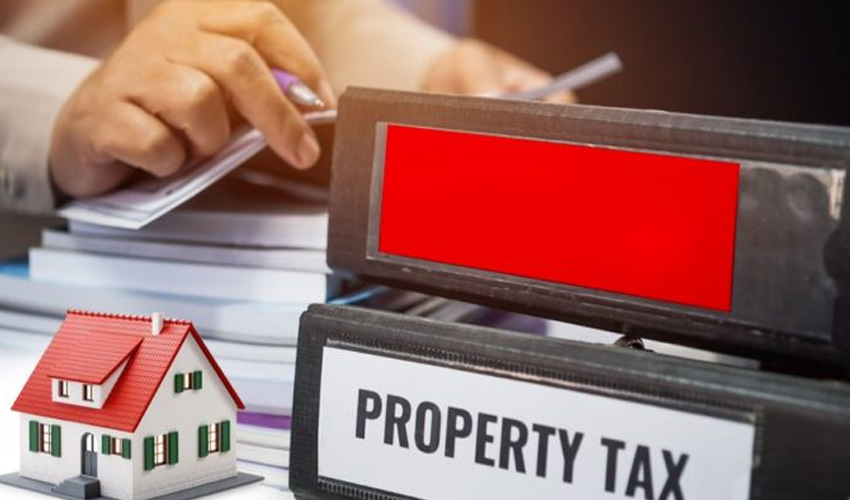Unlocking Savings: Why You Need a Property Tax Reduction Consultant

While property taxes can be a drain on finances, many homeowners and businesses are paying too much—and they don’t even know it. Hiring a property tax reduction consultant will help you find the biggest opportunities to save and ensure you never overpay. In this blog, you will learn how these experts work and why hiring one can be a good investment.
The Unseen Aspect of Property Taxes: Knowing What You Are Owed
Demystifying Property Tax: What Are You Actually Paying For?
For local governments, property taxes are a major revenue source, used to pay for education, public safety, infrastructure maintenance, and community services. Property taxes help cover the costs associated with maintaining amenities and services that ensure a high quality of life in your local community. Knowing what you are funding through these taxes can help alleviate some of the mystery surrounding them.
For instance, property taxes in an urban municipality may go to public education and roads, while property taxes in a rural area might support the fire department and road maintenance. Remember, property taxes are not just a fee you pay—they are an investment into your locality (albeit an often frustrating one).
Debunking Myths and Misconceptions About Property Taxes
Many myths and misconceptions about property taxes often leave homeowners feeling overwhelmed or intimidated. One common misconception is that property taxes are only charged based on the value of your home. In reality, local assessment practices vary; some jurisdictions consider recent sales data, home conditions, or even neighborhood appeal.
Another myth is that property taxes always increase. While this may be true in some areas, others have tax caps limiting annual increases. Additionally, property tax assessments are not always accurate, and many homeowners are unaware they are overpaying. That’s why it is crucial to understand these misconceptions—incorrect assumptions can lead to unnecessary financial burdens.
Comparative Approaches: Differences in Property Taxes Between Regions
Property taxes vary widely depending on location. Not only do tax rates differ, but so do exemptions and deductions. Some states, like New Jersey and Illinois, have high property tax rates due to school funding requirements and pension obligations. In contrast, states like Hawaii or Alabama have lower rates because of different funding structures.
Some jurisdictions assess properties annually, while others reassess every few years. Because of these differences, homeowners need to educate themselves on local tax laws to avoid overcharges and ensure fair taxation.
You’ve Realized You’re Probably Overpaying—Now What?
Warning Signs You Might Be Overpaying
One key sign of property tax overpayment is a tax bill significantly higher than that of similar homes in your area. If the assessed value of your home is increasing much faster than it should—especially if you haven’t made significant upgrades—this may indicate an overvaluation.
Market trends matter too. If home values in your area are declining but your property taxes are rising, it’s worth investigating further. Being observant and proactive can help homeowners address potential overcharges before they become a long-term financial drain.
Real-Life Success Stories: Homeowners Who Got Property Tax Reductions
Many homeowners have successfully challenged overvalued property tax assessments. For example, a family in Chicago discovered that their home was assessed 20% higher than comparable properties. With the help of a property tax reduction consultant, they appealed the valuation and saved over $2,000 annually.
Similarly, a retired couple in Houston faced a sudden property tax increase due to an inaccurate assessment. After providing documentation proving their home’s lower value, the county not only reduced their tax bill but also issued a refund for past overpayments. These cases highlight the importance of reviewing property assessments and taking action when necessary.
What To Do If You Suspect an Overcharge
After identifying potential overcharges, the next step is gathering evidence to support your claim. Obtain appraisals for similar homes in your area and track any renovations or improvements that may impact your home’s assessed value.
Research your local government’s appeals process, as procedures vary by jurisdiction. Hiring a property tax reduction consultant can streamline the process, ensuring you meet deadlines and submit the necessary documentation. This strategic approach can maximize your chances of securing a property tax reduction.
Why You Should Retain a Property Tax Reduction Consultant
The Hidden Cost of Handling Property Tax Appeals Alone
Many property owners attempt to handle tax appeals themselves to save money, but they may ultimately lose out on larger savings. A property tax reduction consultant understands local tax regulations, comparable property values, and the appeals process better than the average homeowner.
Even if you identify an overvaluation, consultants can spot additional discrepancies that might otherwise go unnoticed. The appeals process can also be complex and time-consuming, making professional assistance valuable. While hiring a consultant may involve an upfront cost, the long-term savings in time and money often outweigh the initial expense.
How to Choose the Right Consultant
Finding the right property tax reduction consultant is crucial to maximizing your savings. Start by reviewing qualifications, licensing, and client testimonials. A reputable consultant should be transparent about their fees and clearly explain their process.
Ask about their communication methods—you want to be kept informed throughout the process. Many consultants offer initial evaluations on a no-win, no-fee basis, ensuring you don’t pay unless they secure a reduction.
Case Studies: The Value of Professional Tax Consultants
Numerous homeowners have benefited from hiring property tax reduction consultants. For example, a Phoenix homeowner facing an unreasonably high tax assessment hired a consultant who successfully negotiated a 30% valuation reduction. This not only eased their financial burden but also ensured fair taxation moving forward.
Professional consulting services help homeowners save money while increasing their understanding of property tax strategies.
Steps to Avoid Rising Property Taxes
Scheduled Property Appraisals: When and Why to Conduct Them
Annual property assessments help ensure homeowners are not overpaying or underpaying their taxes. While municipalities conduct assessments on their own schedule, property owners should proactively track their home’s value, especially in fluctuating markets.
Staying informed about property values provides leverage when challenging an assessment and ensures you are paying a fair amount.
Building Relationships with Local Tax Authorities
Maintaining a good relationship with local tax authorities can be highly beneficial. Engaged homeowners can better understand how assessments are conducted and raise concerns when necessary.
Attending public hearings, joining community groups, or simply making a phone call can foster open communication. This not only helps property owners stay informed but also contributes to fairer assessment processes.
Resources and Tools to Monitor Property Values
Property owners should leverage tools like Zillow, Redfin, and local property assessment offices to track market trends. These platforms offer insights into property values and help homeowners stay ahead of potential overcharges.
Subscribing to real estate newsletters or neighborhood groups can provide real-time updates on market changes. Staying informed ensures property owners are well-equipped to challenge unfair assessments and protect their financial interests.






